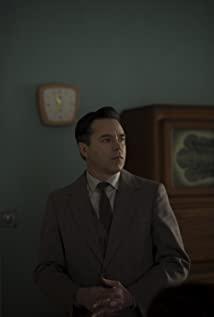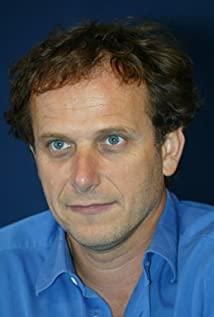"Killing" shows a conflict between two families triggered by a small contradiction. The various emotions of the two sides are intertwined, and the secrets of family affection, interpersonal, and psychological factors have been exposed one after another, portraying the depressing middle class of the United States. life. Under Polanski's control, the film is full of spatial tension, but it alludes to life but makes life more clear. This is not the case with this "Named Storm". As a work within the standard, the film as a whole does not show good spatial control, and in some places it is too pretentious. Therefore, it should be said that the film’s "within the standard" is largely due to the wonderful performances of the film actors, and several brilliant pens are no worse than Kate Winslet in "Killing". Speaking of wonderful group dramas in a single space, which are both French films, one has to say François Ozon's 2002 film "huit femmes". The minutiae of the film, which are constantly trimmed and chaotic, are intertwined, allowing the eight women in a family to go from one contradiction to multiple conflicts that collide with each other. When these contradictions and conflicts surfaced step by step and close-up clearly, Ou Rong's lens operation was very concentrated. Relying on many long mid-range shots and close-up shots and a large number of meaningless lines, the film almost produced a The effect of this kind of space explosion gives people a breathless sense of depression, and the wonderfulness is self-evident. Although the movie "Named Storm" is not as delicate as "Killing", and is not as exciting as "Bami Tu", it is absolutely remarkable in terms of performance, so it has been successful in the overall emotional transmission.
In the history of film, there are many successful adaptations of stage plays, such as French director Alan Renai's "Several Spring Breeze and Several Frost", Polanski's "Killing" and so on. This "Named Storm" is also adapted from the stage play "Name" of the same name. The stage play generally has a plot focus, and the tradition of drama conflict is induced through character dialogue. How to reinterpret the stage play on the big screen and give out new things, Is the key to the successful completion of the transition from stage to screen. This simple plot similar to "Killing" and "Bame Tu" mainly shows a conversation, or quarrel, between the most important people in the family: sister, younger brother, older sister’s husband, and younger brother’s wife. They had a lengthy discussion around the issue of naming their younger brother Van Shang’s son who was about to be born. They smoothly jumped out of this circle and involved many “undercurrents” that had not been discussed before, and conflicts and joys arose. The film still focuses on the things between people, especially between relatives. Of course, this is also a topic that the film has eternally pursued for more than a hundred years. In the film, the viewers have also seen the effort to find the end. However, It's just seeing, so this is still a comedy.
In terms of space operation, the film is obviously focused on the dining table, starting with a food delivery person, after introducing the main characters, the family begins to have dinner at the sister's house. For the French, it is natural to talk when eating, and the images of several people gradually become fuller in a tit-for-tat dialogue, making people patient to listen to their respective chattering and because Van Chan wants to give their children a homophony with Hitler. The name is nonsense. The confined space has an effect here, and the viewer can clearly see that people appear restless in front of the camera, so that the topic eventually involves their friends' secrets... After the beginning and end of the dispute, the child is finally born. , But because it's a girl, she can't use her father's name. When Van Chan walked out of the delivery room to tell the relatives of this news, they jointly decided to use the mother's name as the child's name. The seemingly happy ending is reasonable and expected, and because the movie is different from the particularity of the stage play, the fragmented plot linked by the dialogue is quite a bit of thought, and it is compared with the consistent overall expression of emotion. , The actor's proper performance wrote a wonderful footnote for the whole process of lingering and chattering. Although the space processing of the film itself is not very successful, it is very easy to use force, grasping all the feelings of the family on a dining table, so as to make use of the sense of space that the stage play does not have, so that all kinds of situations can be exposed to the pressure of space. After all, it makes people feel deeply about the treacherousness of life and the need for self-entertainment.
In terms of character creation, the film has a bit of violent aesthetics. Several well-mannered protagonists laugh, tease, get angry, reveal the bottom... People can't help but think, the tedious daily life makes everyone have a strange violent factor secretly in the body. Floating, but everyone is suppressed. So, when modern people are gentle, modest and courteous, where is the exit of his violent nature? What this film shows is exactly the export of this violent factor after it exploded. Family gatherings intertwined with warmth and resentment, fierce quarrels between the protagonists, exposing the dark, and the naked and violent nature of civilized people are fully revealed. Perhaps this is the least dangerous state. When the "dark" nature of the relatives was vividly and exquisitely displayed after the quarrels, and when the elegant and peaceful "libra trombone man" confessed that he fell in love with his friend's mother, this man who claimed to be the most Swiss and most neutral actually said it. My biggest secret, for an instant, I feel that he is simply God. He has cast a very ambiguous point between violence and aesthetics.
In addition, it is very easy for viewers to appreciate the unique French style in the film: their words, their arrogance. For most people, as a French film that has always refused to merge with Hollywood and other people, this is a literary and artistic film, but for me, it is a cultural film, because today’s globalization aims to seek common ground while reserving differences. When you watch a movie, you can see the French and you can see yourself, more like Vincent said before going to bed, "We are not perfect."
View more about What's in a Name? reviews











